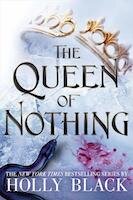Review: Piranesi
/5 stars. All the stars. Favorite read of 2020. Piranesi will be etched in my mind forever as a book that feels written For Me. Beautiful, strange, special. Those are the words that come to mind but there's so much to think about and so much to unpack - how on earth can I process it all?! I checked it out from the library but will be buying it immediately so I can return to the Halls as often as possible. Daily, maybe. For comfort.
Piranesi is a collection of journal entries written by an unknown and unnamed narrator who inhabits a labyrinthian world of connected classical buildings full of statues. He shares this world with no other people - just the ocean, amiable flocks of birds, and the remains of those who traveled there before him. He seeks to catalogue the world, tracking the tides of the ocean and mapping the halls and their statues. He receives regular visits from another man he calls the Other - a man who seeks a Great Knowledge within the world. And he begins to realize, slowly, that there is more beyond his world. More than he ever could have possibly imagined.
I keep considering Annihilation as a suitable comparison - both feature deeply academic minds (systematic thinkers) as protagonists, both feature mindbending, metaphysical mysteries, both have become infinitely special to me. I appreciate books about people who must work hard to fit; people who try and try to fit and don't and eventually discover that the fact that they don’t allows them to navigate impossible - and I mean impossible - situations. I love these characters. They are my tribe.
Clarke's aesthetics, her visuals and imagery and descriptions of the statues, were shots straight to my art-starved heart. I certainly didn't expect to miss museums so much during the Terrors of 2020 - not just the museums themselves, but the specific experiences and memories of visiting them, walking around, feeling weightless and soothed by the art around me (ex-art history student, lol). I realize Piranesi's world is NOT a museum, exactly, but the sisterly concept made my soul ache all the same. Some of the passages about how the narrator turns to the statues for comfort, knowledge, protection, with so much reverence and respect ... are absolutely lovely.
Are there lessons here? Probably - definitely. For such a little book, Piranesi explores big stuff like identity, academic pursuit, ego, humanity, survival, resilience, fear, deception, friendship, memory and kindness. Moments, such as when Piranesi sacrifices three days of fuel to help an albatross build a nest, will stick with me forever. The contrast between the interactions Piranesi has with the Other and then with 16 (trying to avoid spoilers) says so much about intention and empathy. It hurts but it feels good.
So much about me!! Ugh. This is turning into a response/reaction, not a review. Plot-wise, story-wise though, Piranesi is a work of genius. We as readers are dropped into something so strange it should be too much - but it isn't. Clarke never, ever asks too much of the reader, and the way she drops little hints and clues and glimpses of the bigger picture is brilliant. The pacing is perfect. The unspooling of this thread is incredible. This should be studied. Which it will, by me. A lot.
Piranesi on: Amazon | Bookshop.org | Goodreads










